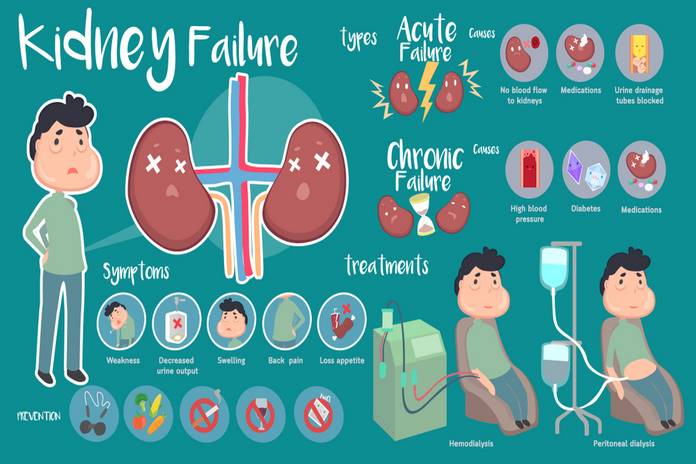Kidney Failure
Renal failure is a condition highly associated with thrombocytopenia. Many studies have illustrated both acute and chronic renal failure to have a connection with anemia and thrombocytopenia. Acute renal failure decreases or even stops the renal function, which causes an increase in serum creatinine. As the kidney doesn’t work properly, the waste is not eliminated from the body, and due to progressive loss of renal function, the patients end up with hemodialysis.
It results in various abnormalities, including thrombotic events and bleeding. Thrombocytopenia has been seen in a significant number of hemodialysis patients. In a patient with chronic renal failure, the platelet count decreases, and chances of thrombocytopenia increase. The patient can face platelet dysfunction and bleed. A study was performed to understand the relation between thrombocytopenia and renal failure. The results showed renal failure to be associated with anemia and thrombocytopenia and can give rise to other complications.

